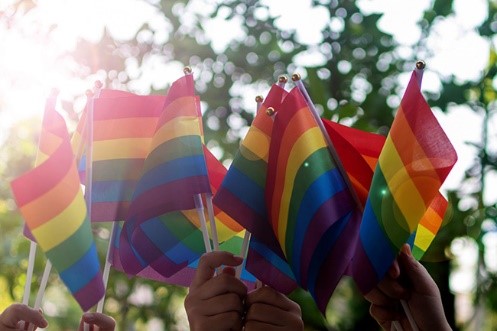Working with adolescents presents numerous issues for psychologists who work with lesbian, gay, bisexual, and transgendered (LGBT) youth, which must be addressed with care. The goal is to explore
- The different kinds of issues that LGBT youth face, such as stigmatization in a heterosexual social structure.
- The technology to help mental healthcare workers provide such a safe and nurturing environment, working against stigmatization and persecution of the LGBT population, as a moral imperative to understand and support LGBT youth.
The LGBT community is a marginalized minority with unique needs that must be distinguished with care. Psychologists are not allowed to discriminate against people based on their sexual orientation in any way, including denying them fundamental human rights. However, the majority of prejudice against LGBT clients occurs due to activities that the therapist could be unaware of.
Conditions which affect LGBTQ adolescents
`The LGBTQ teen and young adult society are affected by several factors. Compared to non-LGBTQ people, LGBTQ people are significantly more likely to have mental health problems like depression or anxiety.
Fear of coming out and discrimination basis on sexual orientation and sexual identity issues feed these feelings. These worries can lead to mental, suicidal ideation, and substance abuse.
Conclusion and Recommendations that are Necessary

Lesbians, gay men and bisexuals have been active in economic and movements for social justice. Today’s LGBT activists and groups have been increasingly comparing and contrasting LGBT rights movement. They say people have numerous, layered identifications and are members of multiple communities.
There is no one-size-fits-all solution to the difficulties that many LGBT individuals face around the world. As a result of the preceding debate, the following recommendations provided by adolescent and youth services. Individuals and institutions both have a role to play.
- Objective is to help the LGBT organization’s most marginalized persons, including the impoverished, young, the elderly, and trans people.
- Create cross-issue coalitions to address LGBT concerns affecting low-income and minority populations.
- Involve foundation workers in public education on issues affecting Homosexual people of color and LGBT people of low income, including transgender issues.
- Advocate for LGBT racial and economic justice work among charitable peers.
- The media must play a responsible role in changing society’s attitudes by speaking on LGBT topics
- The state and federal governments should work together to help employers make their workplaces and cultures increasingly LGBT-friendly and inclusive.
- To prevent violence in the home and in the public domain, the domestic violence law should be updated to include non-spousal and parental abuse, and all levels of the police force should be taught about LGBT issues and fundamental human rights concepts.
Finally, it should be stressed that protecting LGBT individuals from persecution and harassment does not involve the establishment of new LGBT-specific rights or major human rights standards. Regardless of sexual orientation or gender identity, everyone is entitled to the safeguards afforded by international humanitarian legislation, such as the right to life and liberty, security, and confidentiality, as well as the rights to freedom of expression, association, and peaceful assembly.





